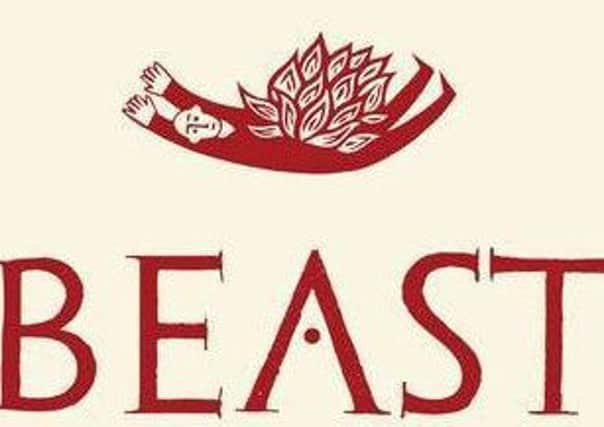Book review: Beast by Paul Kingsnorth


Beast by Paul Kingsnorth | Faber, 168pp, £12.99
In the literature of these islands, the unforgiving blank canvas of the moor or heath has long been a powerful symbol; in the absence of any deserts, it is the nearest thing we have to a featureless landscape, and it is here that characters are often sent by their creators to discover some great truth, as if revelation can only happen in an environment largely free from visual distractions. It would be tempting to cite Shakespeare’s King Lear as the archetype of the character who gains an on-the-heath epiphany, were it not for the fact that – as Gwilym Jones has pointed out – nowhere in any of the various versions of the play does Shakespeare actually mention a heath. Experts have subsequently argued that there is enough evidence elsewhere in the text to suggest that Lear does all his best ranting in such a place, and from at least 1709 onwards, when the word “heath” was first added to a printed stage direction, setting the so-called “storm scenes” on a heath became the norm. Perhaps, then, it would be more accurate to say that Lear has become a sort of cultural shorthand for moorland self-discovery, even if Shakespeare himself actually imagined him ranting to his Fool outside a country pub, shortly after closing time.
The reason Lear is relevant here is because – as culturally imagined if not originally conceived – he provides an inescapable counterpoint to Paul Kingsnorth’s Beast, which could almost be read as a Lear for our times, albeit one shorn of everything except the intense self-reflection of the storm scenes. When we first meet Kingsnorth’s first-person narrator, Edward Buckmaster, he is living a solitary life in a derelict moorland farmhouse somewhere in the west-country, riding out a ferocious storm: “Five seasons I’ve been here now. Five seasons but I’ve never seen a storm like this.” In the same introductory sequence, almost as if channelling Lear (or, rather, channelling Lear as culturally constructed) he says: “I came, to this high place, to be broken, to be torn apart... I came here to measure myself against the great emptiness.” As with Lear, there are also hints that Buckmaster’s self-imposed isolation in the wilderness might be some form of penance for past misdeeds, although the references to what he may or may not have done are highly ambiguous.
Advertisement
Hide AdAdvertisement
Hide AdTo begin with, Buckmaster seems lucid and logical – he sees himself as following in the footsteps of hermits like St Cuthbert, leaving behind the world of men, where “they’re all frantic with their unhappiness and their opinions” to quest after a higher truth. If he appears a little agitated at this stage, much of this agitation is directed at the farmhouse roof, precariously mended, which is threatening to collapse in the storm. I don’t think it’s giving too much away to say that a few pages into the book the roof does indeed collapse, injuring Buckmaster and more importantly signalling a change in his mental state, which from here on begins to deteriorate. Perhaps Kingsnorth’s most ingenious innovation in Beast is the way he uses punctuation to signal this shift: first, Buckmaster loses his commas; later he loses his capital letters. The effect is brilliantly disconcerting (and, incidentally, it mirrors the way in which Shakespeare charts Lear’s descent into madness through the gradual degradation of his language.)
In the first few pages before the accident, Buckmaster wonders if truth, or God, “can only be seen when everything else, including our minds, especially our minds, has dropped or been sheared away” – and in a sense that’s not a bad description of the rest of the book. Through his initial physical suffering, through his subsequent painful rehabilitation and through his defining hunt for the mysterious creature he calls the Beast, Buckmaster alternates between determination and despair, contentment and anguish, and all the time his language is pared back and pared back until it feels as if we are imbibing the very essence of his thoughts. This is a hugely ambitious attempt, almost overwhelming in its intensity, to investigate Lear’s fundamental question: “Is man no/more than this?”
• Paul Kingsnorth, Edinburgh International Book Festival, 29 August